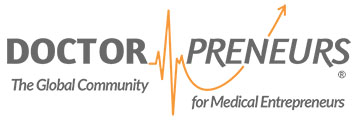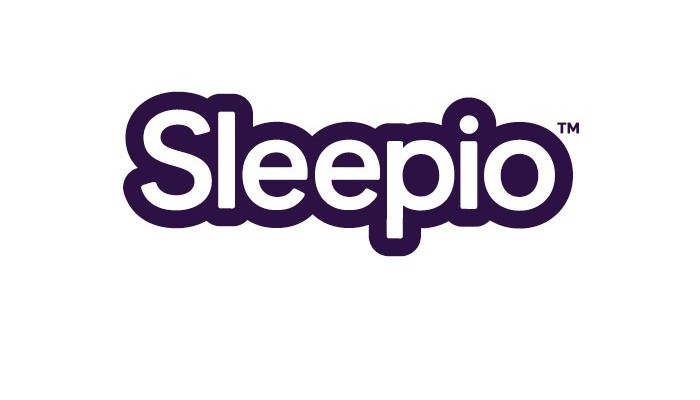 Peter is an NHS Innovation Fellow and the Co-Founder of Sleepio, which is a digital sleep improvement program clinically proven to help overcome even long term poor sleep without pills.
Peter is an NHS Innovation Fellow and the Co-Founder of Sleepio, which is a digital sleep improvement program clinically proven to help overcome even long term poor sleep without pills.
Sleepio is one of Nesta’s New Radicals 2014, and as part of our partnership with Nesta we interviewed Peter about Sleepio.
Your previous history of insomnia inspired you to develop Sleepio. What advice do you have for patients thinking of becoming healthcare entrepreneurs?
Devising a solution based on a problem experienced first-hand is an incredibly powerful starting point. But to create something truly world-class you need to team up with clinical experts in the field. A blend of those two perspectives – clinician and patient – is where the magic lies.
You are currently an NHS Innovation Fellow – can you tell us a little more about the fellowship, and how you feel it has helped with your entrepreneurial journey?
The NHS Innovation Accelerator is a great step forward in getting innovations adopted by the NHS – in terms of the access it gives us to key stakeholders but also the learnings we’re gathering as a group to help the next wave of innovators. It’s supported by some incredibly passionate and committed people, and it’s inspiring to be part of a very diverse but highly motivated group of innovators.
It is interesting that prior to developing Sleepio you worked as the Head of Business Development for the Karaoke company Lucky Voice. What did you learn from this experience, and would you recommend that potential doctorpreneurs gain similar exposure to non-healthcare sectors?
I’ll leave it to you to decide whether my insomnia had anything to do with working in the karaoke industry…! In seriousness I think the biggest skill set missing from healthcare industry innovation in the UK is around commercialisation – building a go-to-market strategy, navigating investment, pricing and regulation. These are skills that healthcare professionals are unlikely to have, and that you can only really learn by doing – so I wholeheartedly endorse any healthcare entrepreneur gaining experience of that process wherever they can.
I think the biggest skill set missing from healthcare industry innovation in the UK is around commercialisation – building a go-to-market strategy, navigating investment, pricing and regulation.
You conducted a comprehensive randomised controlled clinical trial (RCT) for Sleepio prior to launching the product – what have been the main advantages and disadvantages of this strategy?
My strong belief is that evidence is key in digital therapeutics being broadly adopted. At the moment we’re at an early stage in the industry where solutions can get away without peer-reviewed, controlled evidence – but that won’t last, and nor should it. We owe it to patients, clinicians and commissioners to prove that our solutions work, in much the same way we expect pharmaceutical medicine to be backed by published, peer-reviewed clinical studies. So in truth we saw no other option but to gather evidence of effectiveness before launching Sleepio, and continue to do so with academic institutions across the world.
The big lie is that it’s too expensive for startups to engage with – our experience demonstrates that’s an excuse, and one we wouldn’t put up with in any other aspect of medicine.
What advice do you have for our Doctorpreneurs community on securing venture capital funding?
Make sure you know your customer and need, the scale of the opportunity, why you are the ones to take that opportunity, your sustainable advantage and that you have the skills on board to actually take it to market. As a general rule the further you’ve got under your own steam (e.g. product and market validation, initial paying customers) the more attractive you will be to investors – so don’t wait for funding to get started!
My strong belief is that evidence is key in digital therapeutics being broadly adopted.
What challenges have you faced in trying to sell Sleepio to the NHS?
The NHS isn’t currently the easiest place to sell into as a startup – procurement processes are slow, commissioners are under extreme cost pressure and many tend towards risk-avoidance. However, the primary challenge is just understanding the system – if there were a “manual to the NHS for startups” I think that would make the process of getting a foothold a lot simpler! In any case this is a temporary situation – things are changing, and I truly believe the NHS has the potential to become the world-leader in digital innovation.
Is your revenue model focused on business to consumer (B2C) or business to business (B2B) sales? Why have you focused on one over the other?
I don’t think we’re that far away from a world in which the public will be able to self-refer to NHS-approved digital therapeutics via app stores, with the NHS subsidising the cost to the end user based on outcomes. However we’re not there yet – so whilst we develop that model we’re working with large employers in the US and UK to help their staff sleep better. Why? Simply because the burden of healthcare costs falls to the employer in the US, so the significant medical and productivity cost savings we can deliver are highly valuable to those large companies.
Sleepio works with an impressive variety of clinical experts. How did you find these experts and convince them to help you with Sleepio?
It all starts with a sincere commitment to evidence-based practice. I’m lucky in being able to work with Prof Espie [Professor Colin Espie, Co-Founder of Sleepio], who is a world expert in his field (and whose book cured my insomnia). His name and reputation counts for a lot when other experts are considering whether to work with us.
If there were a “manual to the NHS for startups” I think that would make the process of getting a foothold a lot simpler.
What are the next steps in the Sleepio journey?
Helping the world sleep better, and in doing so achieve good mental health without pills or potions!
Check out our interview with Halima Khan, Executive Director of the Nesta Health Lab here.



